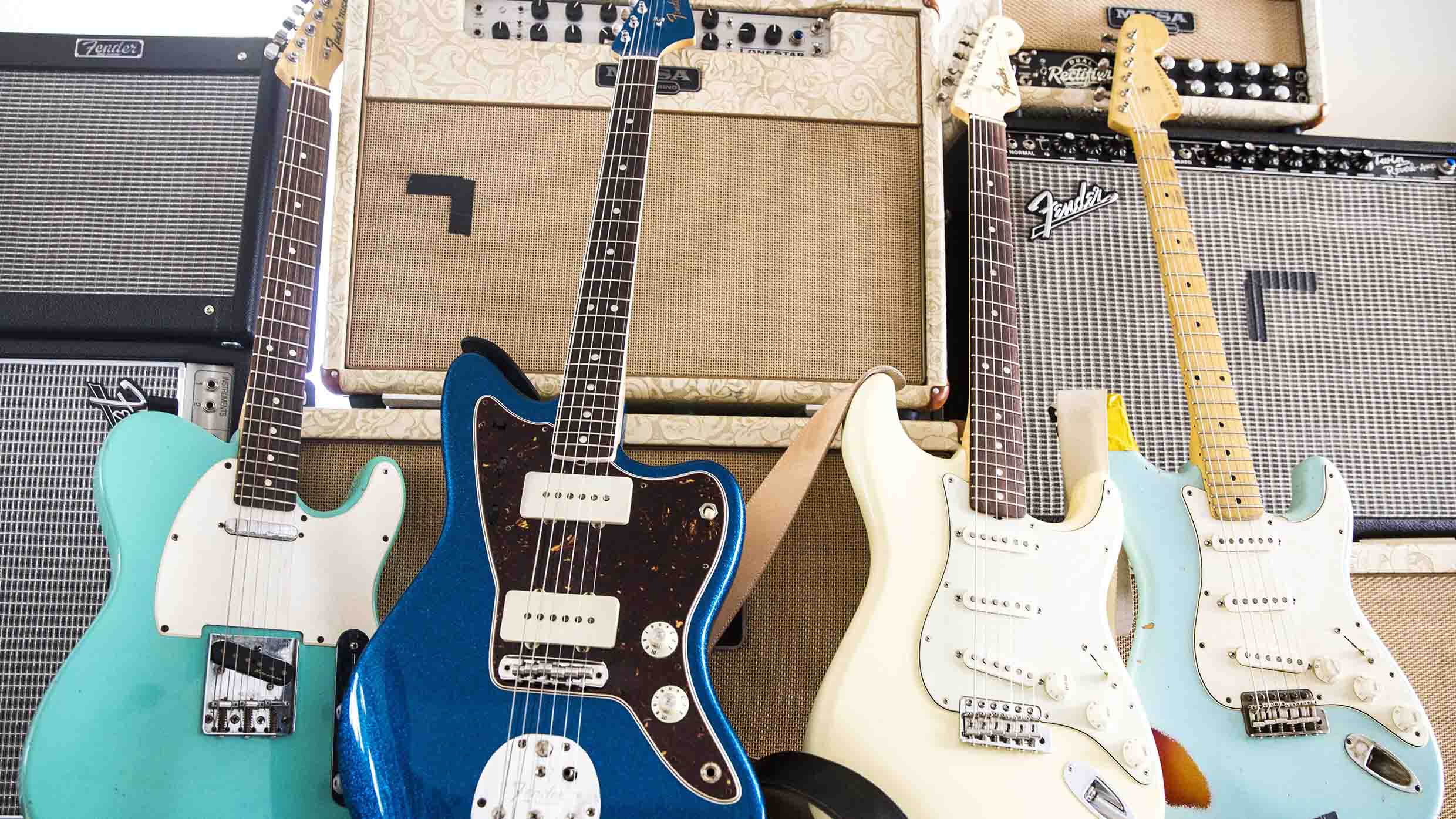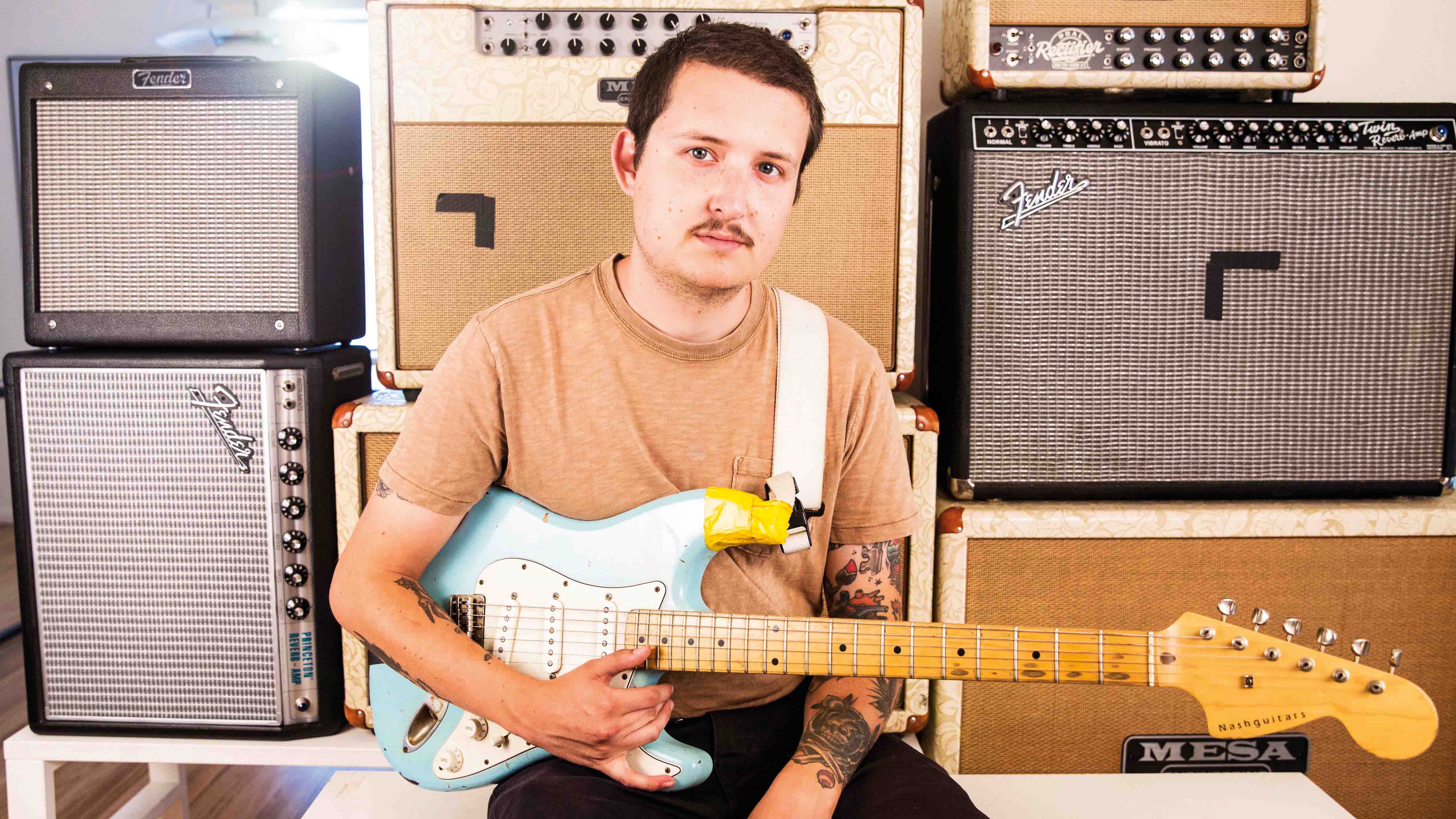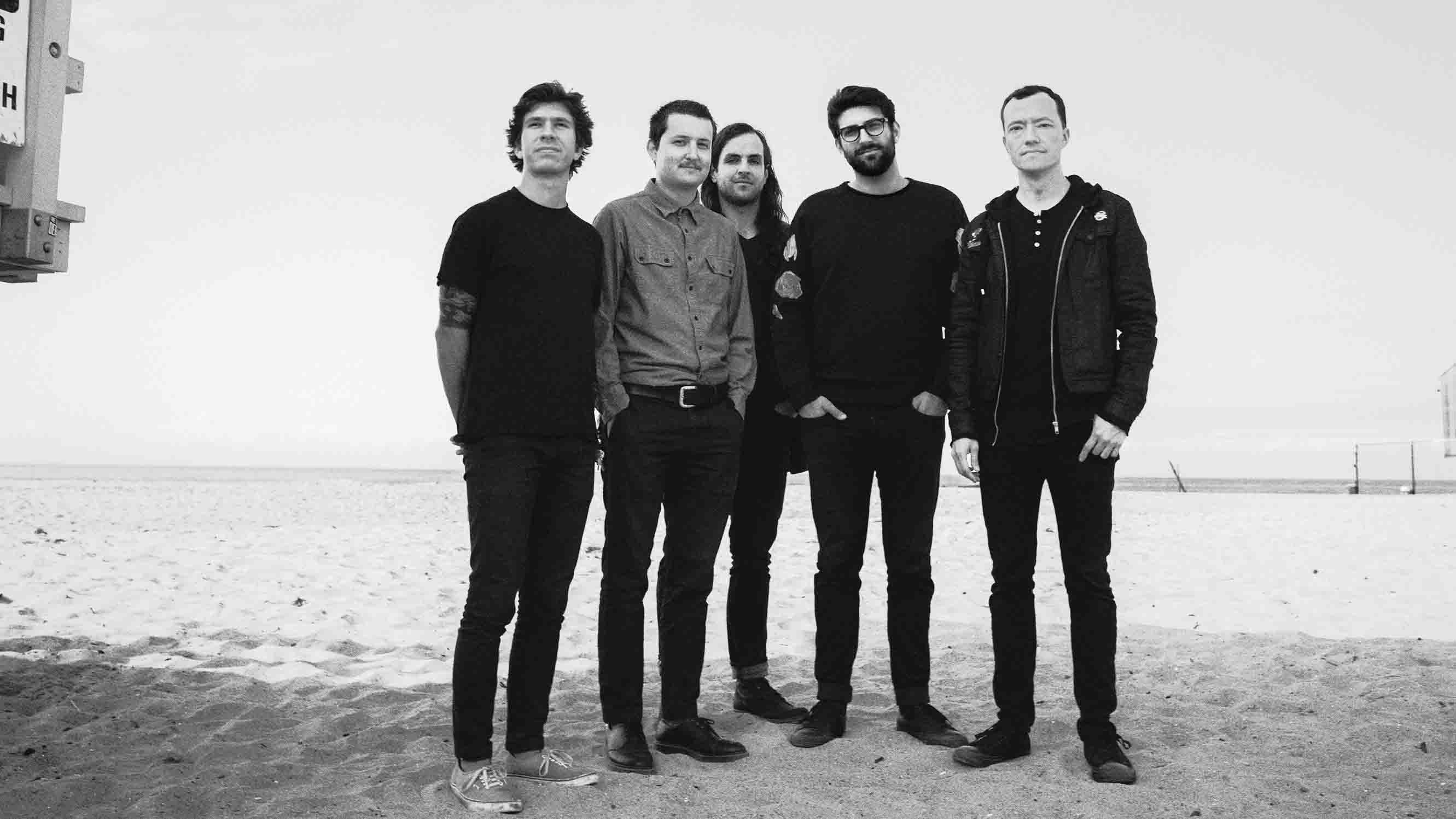Touché Amoré on their Fender-fuelled guitar tone and Stage Four's story of loss, catharsis and reinvention
Nick Steinhardt and Clayton Stevens discuss the hardcore luminaries' new album

Family first
True grief is all-consuming. When Touché Amoré’s frontman Jeremy Bolm lost his mother to cancer in 2014, rays of light must have seemed in short supply. Bolm and his bandmates, including guitarists Nick Steinhardt and Clayton Stevens, had become nothing less than family over a seven-year shared history and all parties were in no doubt that their fourth record would present by far their greatest challenge yet.
“Jeremy is the kind of person that doesn’t really hold back much in the lyrics,” explains Nick, on the phone from California.
“Even before we started writing I was pretty sure that would be one of the main topics.”
We were all there to experience it together, as a family
A band with punk and hardcore ideals at heart, even if their sound has continued to stretch that definition to breaking point, Touché have always written collaboratively.
Ironically though, for a group that’s made its name shredding scenester rules, they write to a broad but firm formula. The music comes first, followed by Jeremy’s lyrics, which meant the group were four songs into the process before their frontman’s intentions were truly made clear.
“I think we all assumed going in that it was going to be a theme. We were all there to experience it together, as a family,” says co-guitarist Clayton, placing particular emphasis on the last word in his sentence.
“Him saying it out loud was important and it did change the direction of the record because we knew that it was what we were going to try and get across and that we should not be afraid to go dark, you know? We knew that there were going to be uncomfortable themes on the record and that the music would have to match that at times. And that’s okay.”
The record the Burbank band produced has been named Stage Four and is their finest work to date. Bolm addresses his grief and his memories of his mother’s battle head-on.
Opening track, Flowers And You, contains the chorus line: “I apologise for the grief, when you’d refuse to eat. I didn’t know just what to say, while watching you wither away.”
It’s tear-jerkingly cathartic and in just two lines paints a stunningly effective picture of the juggled responsibilities, mixed emotions and burning anger of grief.
Glib as it may be to comment, it speaks volumes to the band’s abilities that they’ve been able to bottle such intense emotion so effectively, from Bolm’s lyrical potency, through to Nick and Clayton’s emotive, dynamic bed of interlocking lines and dynamic tones.
“I wanted him to feel cathartic,” continues Clayton.
“For me, it was important to let Jeremy grieve the way that he needed to grieve. Our approach as a group has always been, ‘You’ve got to do what you’ve got to do. We’re a family and we’re here to support you, no matter what.’
“I didn’t go into it with any plan, other than that I love the guy and I wanted to make sure that he could get out what he needed to get out – and use our platform to do it in a way that could maybe help him get through it.”

Power and nuance
That classic hardcore congruence of extreme emotion and direct honesty is at the core of Touché’s approach to making music. However, their approach to tone, writing and arrangement, particularly evident in Nick and Clayton’s contributions, provides the important nuance, showcasing a collective of wider-reaching minds.
“The intersection where Touché meet musically is kind of funny,” explains Nick.
“It is some really heavy music, some really soft music, and some rock bands… but where our interests all meet in the centre seems to reflect how we write, but that’s what makes it atypical, as opposed to just kicking in the distortion, playing powerchords and yelling.”
When we started I didn’t want to sound like other hardcore bands. At the time I was very frustrated with hardcore in general
“When we started I didn’t want to sound like other hardcore bands,” continues Clayton. “At the time I was very frustrated with hardcore in general. There was a lot of violent feeling and that wasn’t what I was trying to get out.
“I was really interested in Godspeed You! Black Emperor and using the guitar more like a violin or something, playing it in a way that was more melodic.”

Single-coil sound
That brighter, melodic approach was quickly reflected in the guitarists’ atypical gear choices, favouring predominantly Fender-y instruments and amps from the beginning, in order to set themselves apart from an ESP and triggered drum-dominated hardcore pack.
Clayton is a ‘cut me and I bleed Fender’-type, favouring the headroom of his ’65 Reissue Fender Twin, paired with a Nash ’63 S-type or his ’62 Reissue Tele.
“It’s super-heavy compared to any other Tele I’ve had,” he tells us. “It’s great, it’s just solid! Especially for clean stuff, it’s just fantastic.”
He continues, “When we did the first record, I pretty much didn’t want to use [external] distortion at all. I was just cranking [Fender] Twins as loud as I could. I’ve always loved the sound of single-coil pickups as well. So it just came out of wanting to do something different.
“As time has gone on, I’ve really refined that and I really love clean guitar, I really love natural overdrive. I don’t really like high-gain stuff; I like stuff that sounds like it’s being pushed.”
We always come back to that American twangy Fender sound. I think that’s what makes our band sound like our band at the end of the day
“At this point, it just feels natural to me. That’s how we sound,” adds Nick.
“Once I choose a guitar we can make a part sound like anything, but we always come back to that American twangy Fender sound. I think that’s what makes our band sound like our band at the end of the day.”
Accordingly, Nick also has classic American tone in his veins and uses a custom-coloured Blue Sparkle ’65 Reissue Jazzmaster, cream Strat (with matching headstock) and custom-covered Mesa/Boogie amps, usually the Lonestar.
“It’s really natural and it’s got a really tight response and it’s super-reliable,” says Nick. “It’s covered in a champagne floral embossed leather, so you can see I’m a bit garish with my choices!”

Tonal trailblazing
Stage Four sees both players expanding their tonal toolboxes beyond anything we’re accustomed to in the hardcore scene. Sonic Youth are a good reference point, but so might be the echoing, chorus’d sounds of Johnny Marr.
“I think for me, new territory was not trying to focus so much on the technical aspects of what was going on,” responds Clayton, when asked about the record’s more pioneering six-string moments.
It’s a wider range of sounds as opposed to a wider range of playing ability
“To be willing to do something simple but experiment with sounds and ways to make it more interesting. It’s a wider range of sounds as opposed to a wider range of playing ability.”
Even with that modus operandi in place the guitarists resisted the temptation to go ‘kid in the candy store’ with their pedalboards, adding just one or two key boxes to expand the range at their disposal.
Nick hails the JHS Panther Cub Analog Delay for its “warm, real-sounding” tone as well as the Mesa Tone Burst (complementing his preferred Mesa Lonestar head) and JHS Double Barrel Overdrive.
“I like stacking things to give me variable intensity, so I have a boost where if I’m playing lightly it barely sounds like it’s on and then if you dig in, it really opens up. I like pedals like that.”
For his part, Clayton’s faithful EHX Holy Grail and Fulltone Fulldrive 2 MOSFET overdrive were augmented by an SiB Mr Echo (for its “tape warp-y” sound), a Sanford and Sonny Bluebeard Fuzz and 80s Boss CE-2.
“It’s all analogue delay and ‘set-by-ear’ sort of stuff,” says Clayton. “I just added the delay pedals and chorus to fill things out and also just tried to have more options for different overdrives and fuzzes and distortions – trying to vary between those three [bases].”

To the future
The band have worked hard to craft a record that sounds and feels worthy of its precious inspiration and they have succeeded. Stage Four is an album that will win devoted followers and deserve them. Not just for its musical dexterity, or its evolutionary approach to hardcore music, but because this visceral response to loss will connect with people looking for answers.
“It’s interesting,” says Clayton, when we point out that they will likely have to repeatedly tour this deeply personal material.
It’s important to me for us to be honest and to express ourselves the way that we want to
“For me, I get to go out and play guitar every day so there’s a certain advantage to that, but it’s important to me for us to be honest and to express ourselves the way that we want to, so in the end, I just want to go out there and show the world what we’ve done, because I’m really proud of it.
“But it will be interesting to look back in the future and see how all of those things feel, if you can detach yourself from it, or not. Right now, I know we’re excited to go out there and show people the hard work we’ve done: to express ourselves for an hour onstage.”
Touché Amoré’s new album, Stage Four, is available now on Epitaph Records.
Matt is a freelance journalist who has spent the last decade interviewing musicians for the likes of Total Guitar, Guitarist, Guitar World, MusicRadar, NME.com, DJ Mag and Electronic Sound. In 2020, he launched CreativeMoney.co.uk, which aims to share the ideas that make creative lifestyles more sustainable. He plays guitar, but should not be allowed near your delay pedals.


